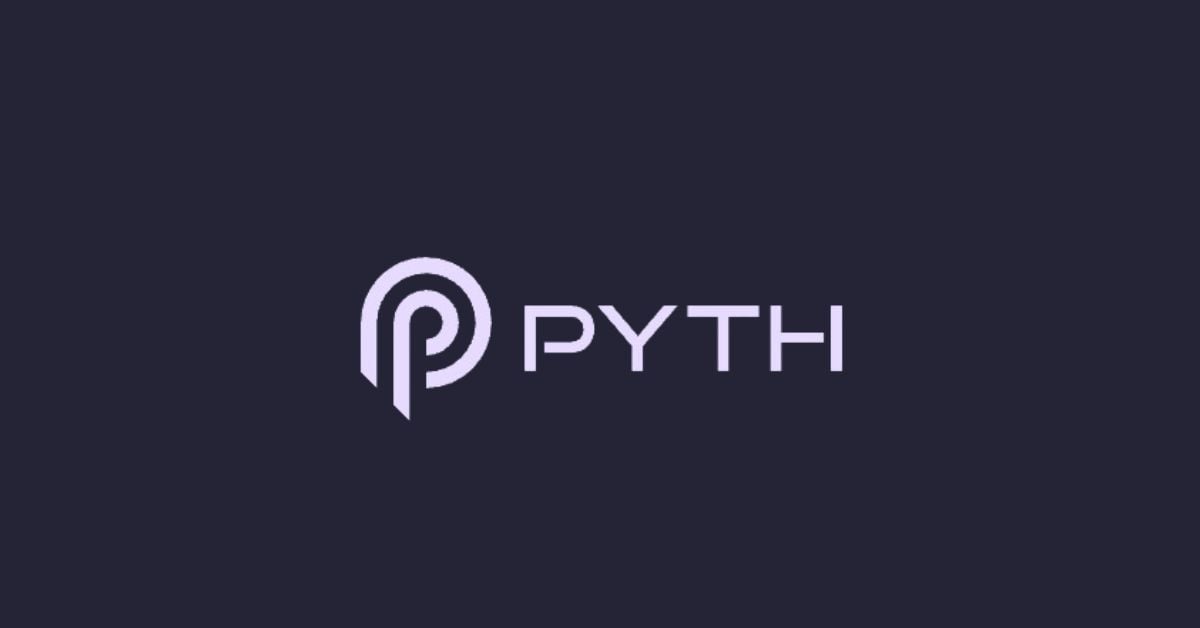Pyth Network ($PYTH) Token Staking Airdrop Guide

Pyth Network ($PYTH) is the world’s largest first-party decentralized oracle network that connects market data from the world’s largest professional traders and exchanges to any smart contract, anywhere. It also provides smart contract developers with real-time price feeds for cryptocurrencies, stocks, forex pairs, ETFs, and commodities across 40+ blockchains. Pyth Network completed its airdrop some time ago. However, those who stake $PYTH tokens have access to potentially hundreds of airdrops in the Solana ecosystem. This could mean the potential to earn thousands of dollars! Here is a guide to staking Pyth Network (PYTH) tokens for the Solana airdrop.
Check out our video on staking $PYTH for multiple airdrops!
What is the Pyth network ($PYTH)?
Pyth Network ($PYTH) is the world’s largest first-party decentralized oracle network that connects market data from the world’s largest professional traders and exchanges to any smart contract, anywhere. They provide smart contract developers with real-time price feeds for cryptocurrencies, stocks, forex pairs, ETFs, and commodities across 40+ blockchains. The network is designed to provide high-quality financial market data on the blockchain, making it reliably accessible to on-chain applications. Key features of Pyth Network include:
- Data network for smart contracts: Pyth connects high-fidelity market data from the world’s largest professional traders and exchanges to any smart contract, anywhere.
- Reliable, low-latency data source: Pyth provides smarter data for smart contracts using institutional sources with access to accurate market information in real time.
- Platform for decentralized applications: Pyth allows developers to build dApps that leverage the power of nuclear fusion for things like decentralized finance, gaming, sports betting, and more.
What is the Pyth Network ($PYTH) token?
The native token of the Pyth Network is called $PYTH. It is a financial oracle solution that provides real-time market data to various blockchain protocols. The network aggregates data from multiple first-party sources to ensure accuracy. According to Coingecko, the current price of PYTH is $0.3508 with a 24-hour trading volume of $85,774,807. Data providers and validators on the network are incentivized using $PYTH tokens, which are also used to pay transaction fees and governance fees.
Can I receive Solana ecosystem airdrops if I stake Pyth Network ($PYTH) tokens?
Since the Pyth Network is part of the Solana ecosystem, which is expected to have a series of airdrops, staking $PYTH tokens will make you eligible to receive multiple Solana ecosystem airdrops. By staking your $PYTH tokens on the Pyth Network, you can receive airdrops from various projects that are part of the Solana ecosystem. Through these airdrops, you can potentially receive thousands of dollars worth of tokens from a variety of projects. By staking $PYTH tokens you can participate in the community and start new projects. It is considered a marketing tool and a way to bootstrap liquidity.
How to stake Pyth Network ($PYTH) tokens for multiple Solana airdrops?
necessary time: 5 minutes
Here’s how to stake Pyth Network ($PYTH) tokens for multiple Solana ecosystem airdrops:
- Phantom Wallet Settings
To set up Phantom Wallet, download the Phantom Wallet Chrome extension here. A phantom wallet is required, just like the default wallet in the Solana ecosystem.
- Get Pyth Network ($PYTH) tokens
To stake on Pyth Network, you need to purchase Pyth Network ($PYTH) tokens or transfer them to your Phantom wallet. You can buy Pyth Network ($PYTH) tokens on major exchanges like Bybit. Alternatively, you can get $PYTH from a decentralized exchange like Jupiter. To qualify for the Jupiter airdrop, you must place a limit order on Jupiter.
Join Bybit here!
- Depositing and Staking $PYTH
Connect your Phantom wallet to https://stake.pyth.network/. Select the amount of $PYTH you want to stake and click “STAKE”. Please note that there is a minimum number of $PYTH you need to stake. The amount is expected to be around 1,000 PYTH tokens, although the Pyth Network team has not yet confirmed this. You can participate in Pyth Network governance through staking. Newly staked $PYTH tokens will be eligible to vote on governance at the start of the next epoch, which starts every Thursday at 00:00 UTC and lasts 7 days.
- Vote for Pyth Network governance
Go to https://app.realms.today/dao/PYTH to vote on the proposal. To vote, click on the suggestion and vote by clicking the Yes or No button. There are no new recent offers at this time, so check back often.
- $PYTH unstake
Go to the “Unstake” tab at https://stake.pyth.network/. Specify the amount you wish to unstake and click “Unstake”. Check your transactions in Phantom Wallet. You must wait until the cooldown period ends to access the token. The cooldown period is 1 epoch after the end of the current epoch.
- Withdraw $PYTH
To withdraw $PYTH tokens, go to the “Withdraw” tab at https://stake.pyth.network/. Enter the amount you wish to withdraw and confirm the transaction in your Phantom Wallet.

Pyth Network ($PYTH) Token Staking Review
There are several factors to consider when reviewing airdrops. First, there is a possibility that the project will conduct an airdrop in the first place. We will then look at how many tokens the project will allocate to the airdrop campaign and the difficulty of participating in the airdrop. It is also important to look at the utility of the token to ensure there is a real use and purpose for participating in the airdrop in the first place. Lastly, a factor to consider when reviewing an airdrop is whether a lock-up period applies to the airdropped tokens.
Airdrop possibilities: Pyth Network has completed its airdrop, but staking is intended to prepare for other Solana ecosystem airdrops.
Airdropped token allocation: The allocation of airdropped tokens depends on the project performing the airdrop.
Airdrop Difficulty: To position yourself for the airdrop, you only need to stake Pyth Network ($PYTH) tokens. This is very simple, but requires real money.
Token Utility: Token utility depends on the project performing the airdrop.
Token Lockup: The token lock-up period depends on the project performing the airdrop.



